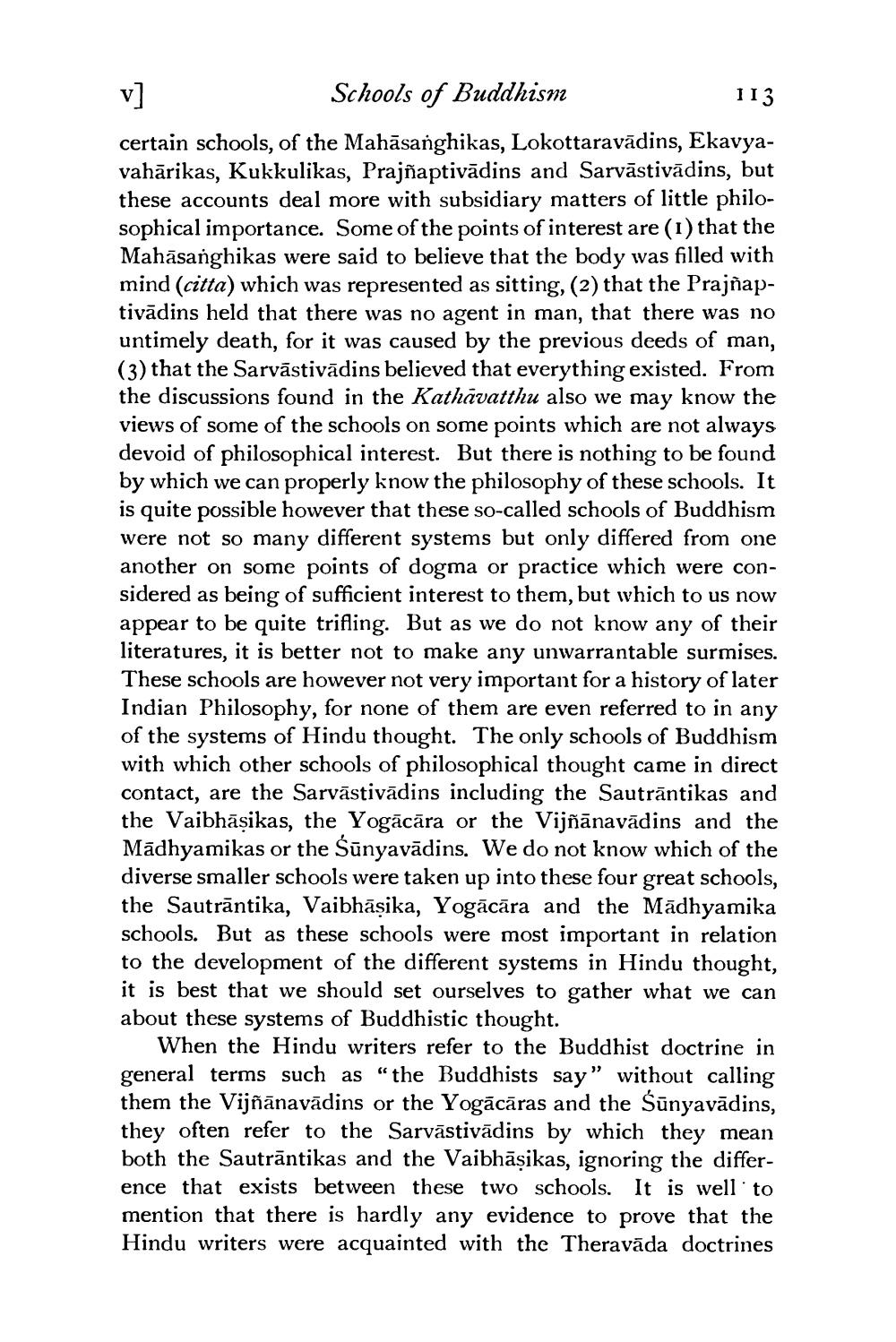________________
v]
Schools of Buddhism
113
certain schools, of the Mahasanghikas, Lokottaravādins, Ekavyavahārikas, Kukkulikas, Prajñaptivādins and Sarvāstivādins, but these accounts deal more with subsidiary matters of little philosophical importance. Some of the points of interest are (1) that the Mahasanghikas were said to believe that the body was filled with mind (citta) which was represented as sitting, (2) that the Prajñaptivādins held that there was no agent in man, that there was no untimely death, for it was caused by the previous deeds of man, (3) that the Sarvāstivādins believed that everything existed. From the discussions found in the Kathavatthu also we may know the views of some of the schools on some points which are not always devoid of philosophical interest. But there is nothing to be found by which we can properly know the philosophy of these schools. It is quite possible however that these so-called schools of Buddhism were not so many different systems but only differed from one another on some points of dogma or practice which were considered as being of sufficient interest to them, but which to us now appear to be quite trifling. But as we do not know any of their literatures, it is better not to make any unwarrantable surmises. These schools are however not very important for a history of later Indian Philosophy, for none of them are even referred to in any of the systems of Hindu thought. The only schools of Buddhism with which other schools of philosophical thought came in direct contact, are the Sarvāstivādins including the Sautrāntikas and the Vaibhāṣikas, the Yogācāra or the Vijñānavādins and the Madhyamikas or the Śūnyavādins. We do not know which of the diverse smaller schools were taken up into these four great schools, the Sautrāntika, Vaibhāṣika, Yogacara and the Madhyamika schools. But as these schools were most important in relation to the development of the different systems in Hindu thought, it is best that we should set ourselves to gather what we can about these systems of Buddhistic thought.
When the Hindu writers refer to the Buddhist doctrine in general terms such as "the Buddhists say" without calling them the Vijñānavādins or the Yogācāras and the Šūnyavādins, they often refer to the Sarvāstivādins by which they mean both the Sautrāntikas and the Vaibhāṣikas, ignoring the difference that exists between these two schools. It is well to mention that there is hardly any evidence to prove that the Hindu writers were acquainted with the Theravada doctrines




